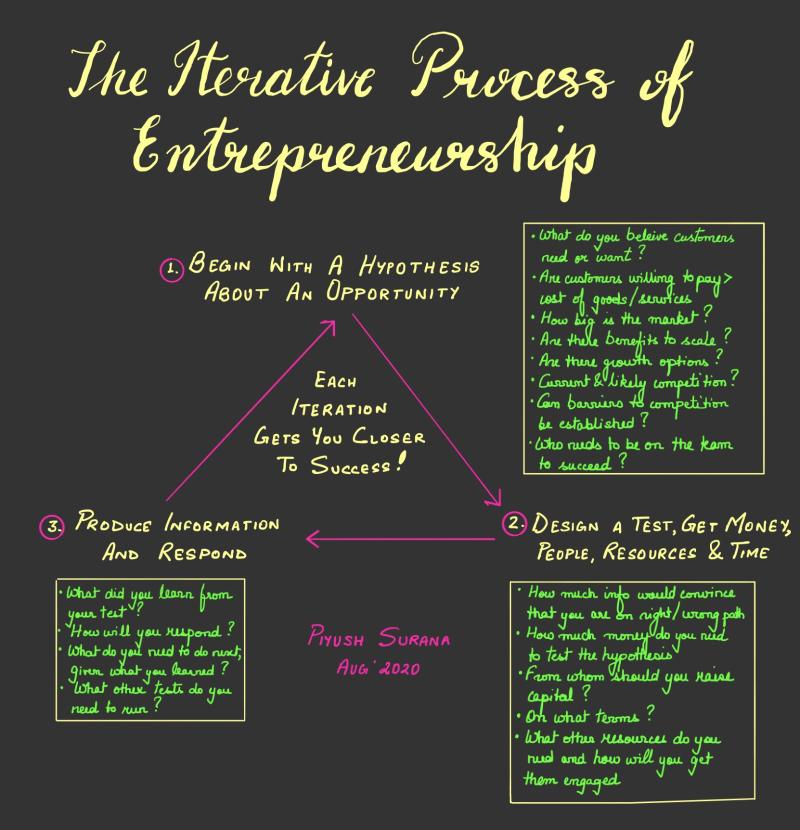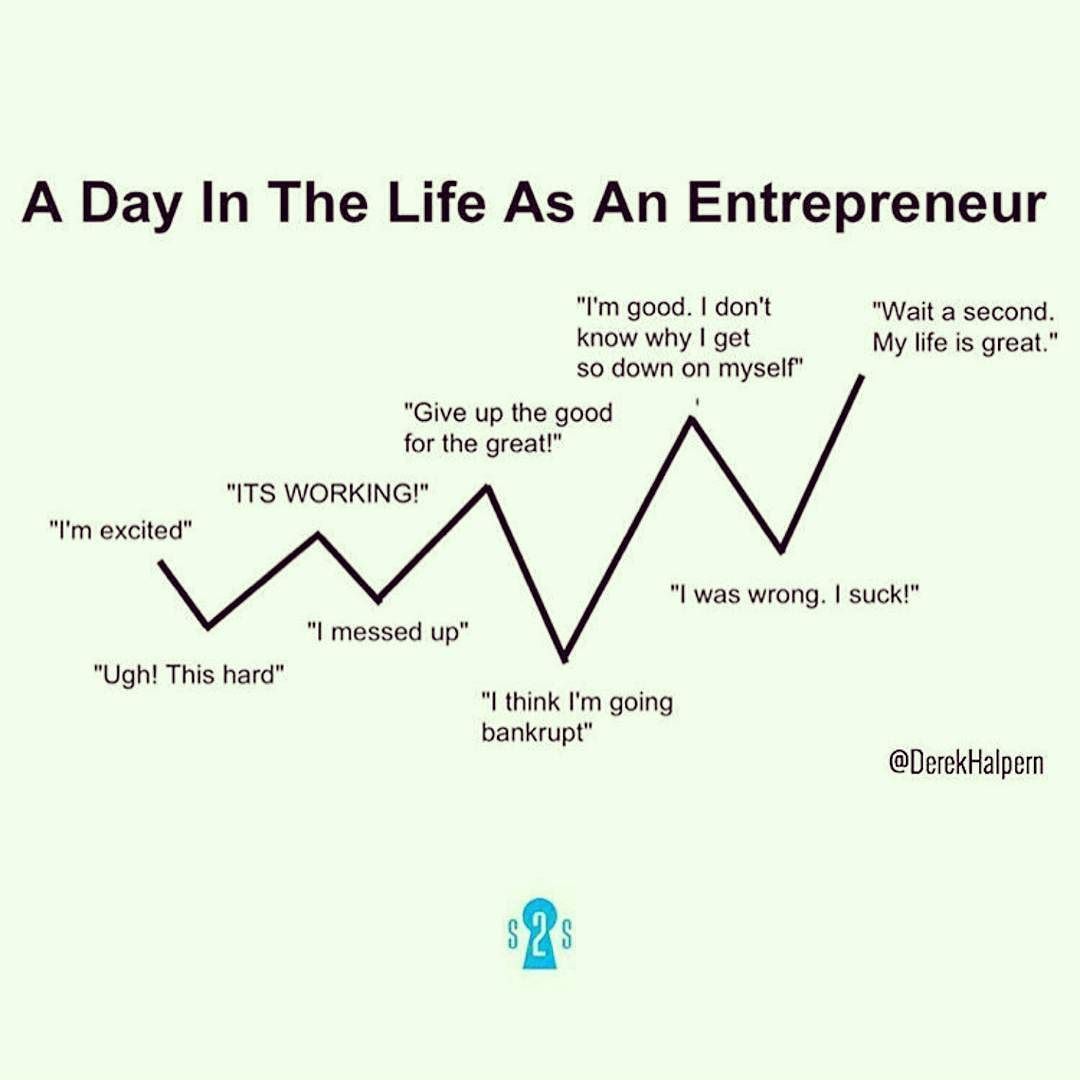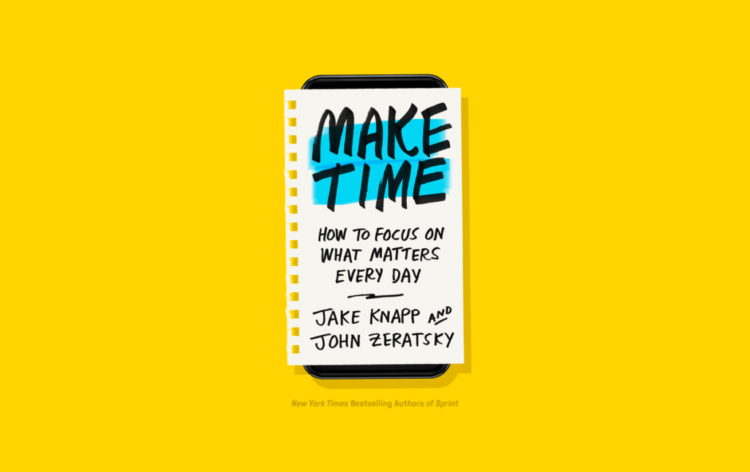There is a sea change in the career aspirations of young people today. Six or seven years back (and probably just as true when I was back on campus), when you asked someone what they wanted to do in the next 5 years, in most cases they answers would revolve around building their career in an organization where their contributions were valued. If you asked for a longer time horizon, the answers would probably be around how they wanted to rise to a position where they could create an impact on their organization and probably the society at large.
While there is of course nothing wrong with this ambition, today the difference is stark. When taking placement interviews on campuses nowadays, more than half the students want to build or create something of their own. Of course, many students are driven by the success stories of the first wave of successful startups from the early 2010s – there were 14 unicorns minted in India by 2018, starting with InMobi in2011. But for many, entrepreneurship not only provides an opportunity to do great work and create an outsized impact but also seems a lot more viable given the ecosystem in play today. The problem however is that most of these students often don’t know where to start or if they really are ready to take the big step of venturing out on their own.
Today there are many successful entrepreneurs and given their example people believe that there are certain personality types that lend themselves well to entrepreneurship. Some of the things that come to mind when people think of strong entrepreneurs are risk-takers or that they are innovators. While I am not an entrepreneur myself, having worked with some of the most successful ones, I want to lay some of these misapprehensions to rest.
Entrepreneurs are not crazy risk seekers/takers. Successful entrepreneurs don’t seek out excessive risk – no sane person does. Instead, they understand the intrinsic relationship between risk and reward: Without risk, there is no return. And the often ignored but just as important corollary: Without return, there should be no risk. Anyone who wants to be an entrepreneur is able to confront risk and make sure that the payoff of risk-reward is in their favour. Basically, they need to have a game plan where they stay in the game long enough to get rewarded.
Also, entrepreneurs are not always the great innovators that they are made out to be. Bill Gates did not invent spreadsheets; Ray Kroc did not invent burgers or french fries (or even the golden arches) and Elon Musk was not the founder of Tesla (just one of the first investors). While innovation and creativity are important tools in the kit of an entrepreneur, successful entrepreneurs are even better at execution.
Then what makes a successful entrepreneur? Having worked with scores of founders I came upon a realization – something that was also corroborated during an entrepreneurship course I took up at HBS last year to understand more about this. The truth is…there is actually no particular personality trait that gives a founder a better chance of success. They come from all walks of life and from all types of backgrounds. There is no single path. And it is often more important to look at an early founding team as a whole than to focus just on one leader.
Instead, there are some behavioural traits (as opposed to personality traits) that I have observed in strong founders that I have worked with and look out for. I am happy to share a few of them here:
- Curiosity and pattern recognition: Entrepreneurs constantly look at the environment around them for opportunities or find about them through their curiosity. They are constantly looking for how to make things better/faster/cheaper. Often, the first idea you have may not be the winner – but as long as you are curious and intent on building out a solution you often discover even better ones once you interact with the market and customers
- Ability to tell a story: As Morgan Housel calls out in his brilliant blog, what a lot of people don’t often get is that in many fields, the person who tells the most compelling story wins. Not who has the best idea, or the right answer. Just whoever tells a story that catches people’s attention and gets them to nod their heads. This is even more important for a founder who is always telling a story to someone. You are also selling to your investors, advisors and mentors to invest in you. You are selling to your early employees to believe in you. You are even selling to your suppliers to work with you. So if you wanted to get into your own business because you did not want to do sales, think again.
- Structured experimentation: Just having an idea or a solution is not enough. The starting point of course is a hypothesis about what customers want or need and how they can deliver value to the customer. But a successful founder needs to be able to marry his creativity with a scientific bent to finding the solution. They structure tests – experiments – in which they try to figure out if their idea is going to work and to guide future decision making. And this does not stop at the first experiment. You need to constantly keep testing ideas and see results to go to the next step. Often, the experiments take you in a very different direction than you started out on.

- Team Building: As this beautiful Ted talk from Derek Sivers explains, we often overestimate the power of the leader and underestimate the power of his initial group of people. To work on your own dreams and plans is easy – to get a dedicated team to take the risk of leaving whatever else they are doing and work on it with you is where real leaders stand out. Without fail, successful founders are able to attract and retain strong early teams that help them build out their vision. And they are able to keep adding to the team at every step of the way. In the early stage of a startup, there is rarely a perfect team – but in successful ones, they are more often than not more than the sum of their parts.
- Persistence: Not every business is successful from infancy. Often the road to building out a business is not straightforward but winding and torturous. To paraphrase Michelle Obama, starting a business is like spending money from a bank account where you don’t know the balance. How much resilience do you have? What is your limit? What would be left in the end? The biggest thing that a founder brings to the business is not an idea or skill or experience. The biggest thing he brings is the drive. You can (and eventually should) hire for everything else. But no one else can bring the drive to the business

“Nothing in the world can take place of persistence. Talent will not; nothing is more common than unsuccessful men with talent. Genius will not; unrewarded genius is almost a proverb. Education will not; the world is full of educated derelicts. Persistence and determination alone are omnipotent.” ~Ray Kroc
Finally, the one thing that you should definitely not do is to start up because you think it is cool or because it seems easier to do than the mundane 9-5 job. Being a founder is a tiring, draining and often lonesome experience. Not to mention really risky. While we get to see the successful entrepreneurs, no one talks about the hundreds and thousands of unsuccessful ones. Please start a business only when you are sure about what problem you want to solve, and you are really passionate about solving it. Once the business has succeeded a lot of things look great in retrospect – the success seems almost inevitable to the extent you question why others did not think of this idea. But those dealing with early-stage startups know that is much more complicated – and tough.
Above all enjoy the journey. Even the most charismatic founder was once a callow youth, and they all made their own share of mistakes. As long as you can sustain your passion and keep growing in your journey, there is no reason why you cannot build something great yourself!




